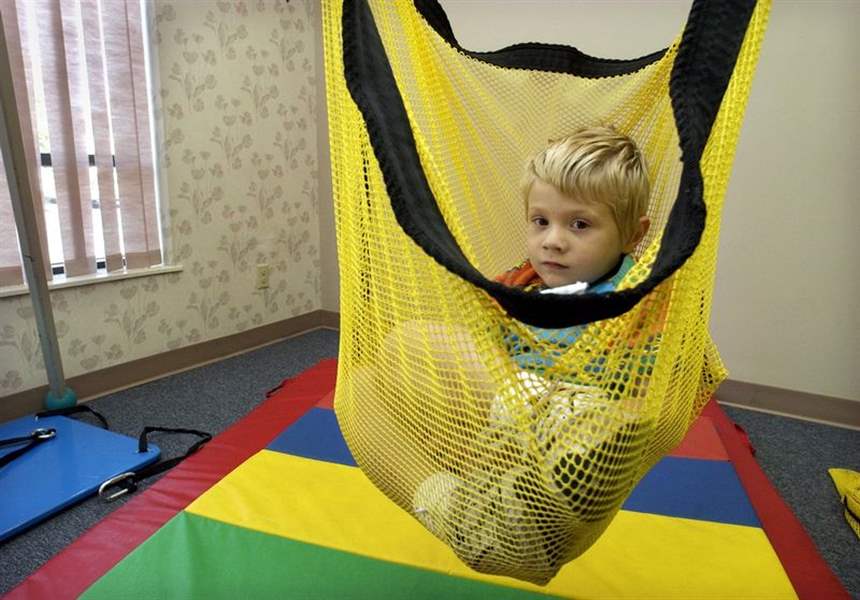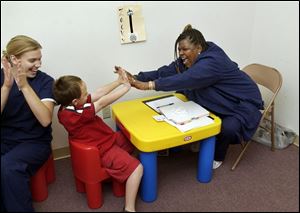
'One-on-one' one good way to learn
7/10/2004
Mitchell Sworden, 3, enjoys a ride in a net swing during the 'play' time part of his session at the rehabilitation center.
zapotosky / blade

Zackary Schroeder, 7, is praised by teachers MaryBeth Rentsch, left, and Phyllis Latimer after counting to 20 by twos.
Mitchell Sworden's teacher placed snapshots of his mother and his father on the table in front of him.
"Give me Mommy," Elizabeth Maher directed the 3-year-old.
Mitchell often picked the correct photo to hand to her. But if his hands moved to "Daddy" during the half dozen times they repeated the exercise, Mrs. Maher redirected him to "Mommy."
"Mommy! Good job!" she exclaimed as he handed it to her and smiled. "Yay! High five."
The Toledo toddler is one of 16 children enrolled this summer at the School for Autistically Impaired Learners. They receive one-on-one instruction during a six-week session.

Mitchell Sworden, 3, enjoys a ride in a net swing during the 'play' time part of his session at the rehabilitation center.
Each day after a group gathering, the children and their teachers pair off into small rooms where they alternate between "work" - exercises to help the children sort, group, match, and select items - and "play," when the teachers still help them learn concepts, such as directions like "up" and "down," with their toys. They also have group snack and reading time and music sessions during the four-hour day.
They work on fine and gross motor skills, building eye contact, and interacting with other children and adults.
"There is just something about them that you can't help but love," said MaryBeth Rentsch, one of the teachers. "They don't mislead you in any way. They're really genuine. When they're happy, they're happy. When they're upset, they're upset."
The 15-year-old program has grown from a handful of students to the 16 this summer, chosen from 169 applications, said Marion Boss, a University of Toledo professor who is the administrative director of the school that rents space in Central Park West Rehabilitation Center in Sylvania.
"Most of the children are in public systems getting very little one-on-one," the professor said.
Autism, a developmental disability with rates on the rise, is a brain disorder that interferes with how people understand and communicate, according to Autism Society of America. The society estimates that 1.5 million children and adults have been diagnosed with autism. Mitchell's parents received his diagnosis in October after taking him to a doctor because they were concerned about his lack of speaking and his refusal